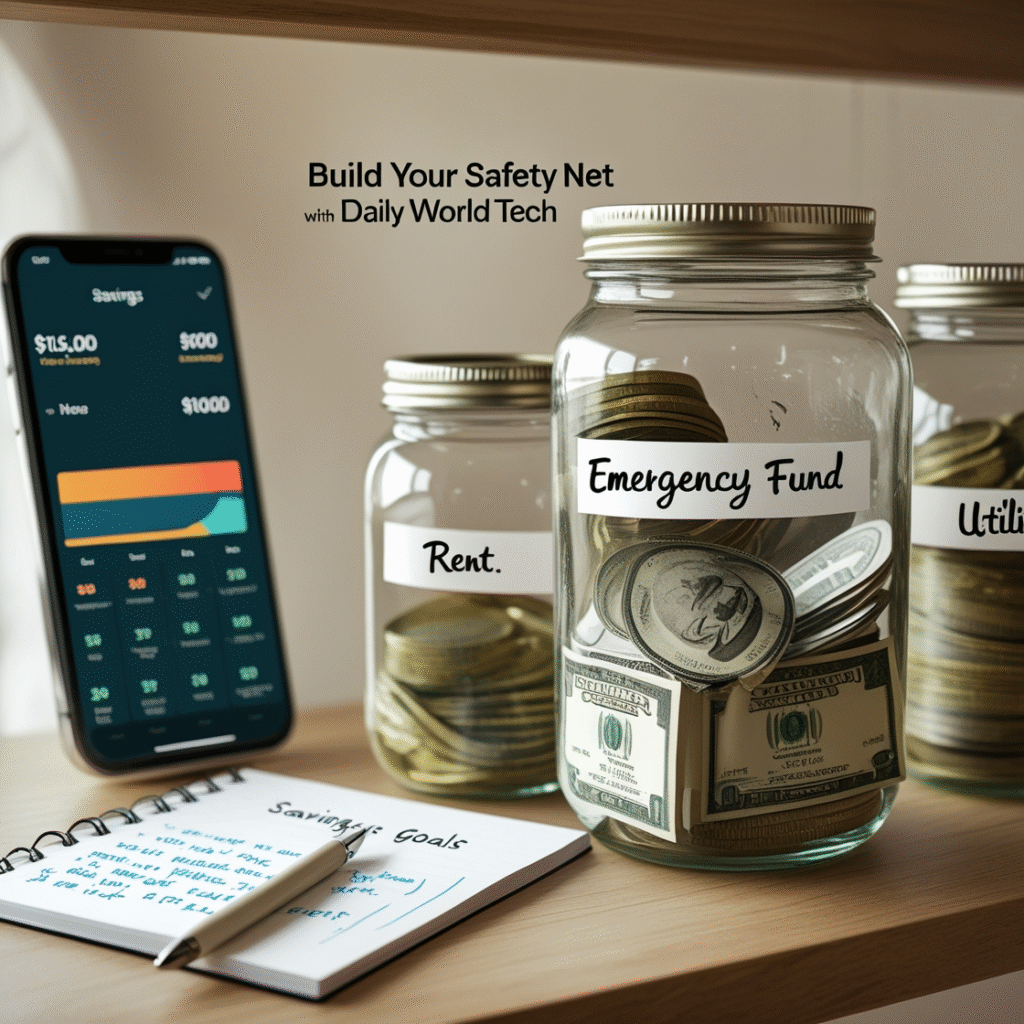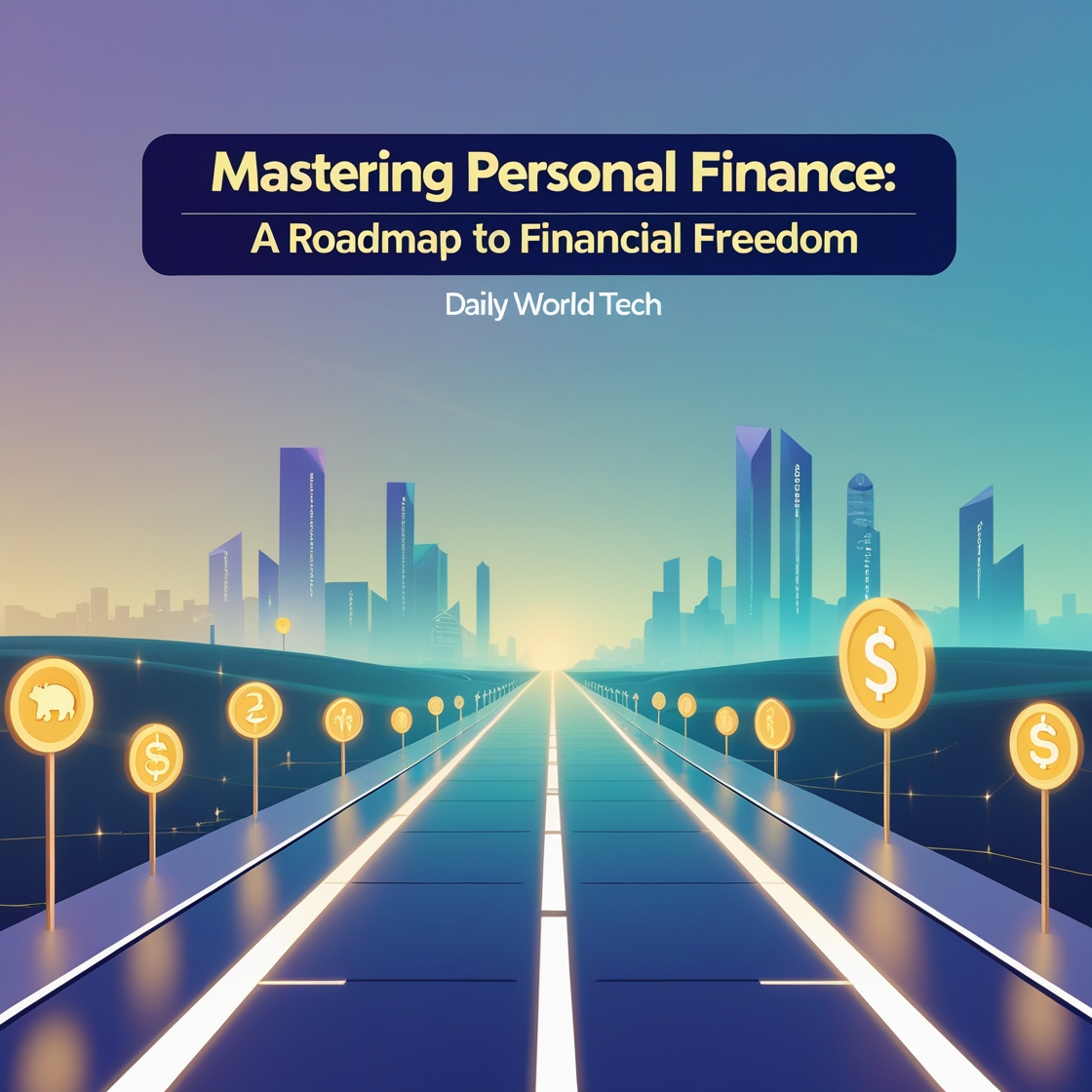Nowadays, the world moves very fast, and it is not only a luxury, but the fact is that financial stability has become a necessity. Personal financial management may be the key to moving out of eking up your finances to develop a stable, financially successful lifestyle. Regardless of whether you are a student, a young traveling professional, or one that is close to retirement, you need to have a strong command of the principles of personal finance. This blog is an advent into the top ten personal finance tips that are going to ensure you have the assurance of your financial future.
1. Make a Practical Budget and Do Not Cheat
Budgeting is the central theme of personal finance. A budget is a simple budgeting plan that enables you to manage your income plans wisely such that the money is distributed equally between bills, activities, savings, and investments.
The Significance of:
- Assists you to monitor your revenues and expenditures
- Eliminates spending too much money
- Allows you to give priority to costs essential to you
How to Start:
- Note down all the sources of income.
- Monitor fixed and variable costs (e.g., rent, groceries, transportation).
- Apply the 50/30/20 guide: 50% on needs, 30% on wants, and 20% on your savings and debt payments.
- Make adjustments monthly depending on the lifestyle.
It can be simplified and made more efficient with the use of budgeting tools such as Mint and YNAB (You Need A Budget), or even the use of regular spreadsheets.

2. Emergency Fund Preparation
Emergency funds are like the roll of money you can rely on when there are unforeseen events in life such as those associated with illnesses or car troubles.
Why This Is Important:
- Prevents going into debt in times of need
- Gives relief
- Lifts away financial stress
How Much to Save:
- Try to save 3 to 6 months of basic needs.
- Begin small, when necessary (e.g., $500 or a month’s rent), and increase with time.
Stash the fund in a fluid money market fund or a high-yield savings account. You should not use this fund on non-emergencies.
3. Pay Off and Pay Down Wisely
When unattended, debt may turn out to be a severe financial problem. Whether it is your credit card, student loan, or any other type, it is important to understand and minimize the debt.
Best Practices in Debt Management:
- Debt Snowball Method: Pay the minimum amounts on all other debts and pay off the smallest amount of debts first.
- Debt Avalanche Method: Pay off high-interest rate lending first.
- Refinance mortgages when there are lower rates of interest.
- Use of credit cards should be avoided where unnecessary.
High-interest rates pose a special threat to credit card debt. The easiest way to pay no interest is by paying in full at the end of every month.

4. Save Early and Save Often
It is very important to make investments in order to make your wealth increase and become stable in the long run. The younger you are, the more time your money has a chance to compound.
Investment Options:
- Stocks: With greater risk, possibly greater reward
- Bonds: Less risk, regular returns
- Mutual Funds and ETFs: Professionally managed and diversified
- Real Estate: Potentially provides a source of income (in the form of rent), as well as capital appreciation over the long term
- Retirement Saving: 401(k), IRA, or country-specific equivalents
Automate your investments by putting up automatic monthly contributions in your investment accounts to stay wealthy.

5. Live By Dipping Into Your Means
Living below your means implies that you consume less income than what you have. It is easy to say and, yet, it takes discipline and a deliberate effort.
Benefits:
- Releases resources for savings and investments
- Helps to avoid debt levels
- Creates financial discipline
How to Do It:
- Reduce unnecessary costs such as restaurants or extravagant shopping
- Shop wisely: buy in bulk, wait on sales, and use coupons
- Learn to distinguish wants from needs
Financial independence starts when you are conscious of what you shop for and avoid lifestyle inflation.
6. Prepare to Retire in Advance
It is very likely that you are a student or working around the major cities, and in your 20s or 30s, retirement probably seems far away. However, the earlier you get it planned, the easier it will be.
Why Plan Early:
- Long-term savings are multiplied by compound interest
- Smaller monthly contributions over a longer duration
- Lowers reliance on government pensions
Key Actions:
- Make contributions to company-sponsored retirement plans (e.g., 401(k), EPF)
- Contribute to personal retirement accounts (e.g., Roth IRA)
- Take full advantage of employer contributions they are free money
- Rebalance your portfolio yearly based on risk tolerance and age
You may want to consult a registered financial planner who could help draft a good retirement strategy.
7. Know About Taxes and Optimize Them
Tax planning is an important component of personal finance, which can be effectively used by a person to legally minimize tax and retain more money.
Tax-Saving Hints:
- Invest in retirement and education utilizing tax-deferred plans
- Claim deductions (e.g., home office, student loan interest, medical expenses)
- File taxes on time to avoid fines
- Buy tax-efficient funds and assets
Knowing your local tax brackets and how you can seek relief can make a great difference to how much you receive at home as salary, as well as in your investment income.
8. Monitor and Work on Your Credit Score
The credit score influences whether or not you can obtain loans, lease a house, or even secure various jobs. A higher score implies better interest rates and lower insurance premiums.
How to Fix Credit:
- Pay your bills on time payment history forms 35% of your score
- Maintain low balances on credit cards
- Avoid too many hard inquiries
- Ensure a long credit history
Review your credit report once a year so that you can appeal any mistakes. You can check your score free of charge using tools like Credit Karma or government resources.
9. Take the Right Insurance Cover
Insurance saves you and your property against sudden losses. A single emergency is enough to wipe out years of savings without it.
Types of Insurance That Are Mandatory:
- Health Insurance: Covers medical costs
- Life Insurance: Supports dependents upon death
- Home/Renter Insurance: Covers property and items
- Auto Insurance: Covers vehicle damage or theft
- Disability Insurance: Replaces income if you become unable to work
Make sure you do not pay too much for coverage, but at the same time, do not underinsure. Keep yourself covered by comparing prices and reviewing policies once a year.
10. Keep Learning Personal Finance Topics
One can never stop learning financial literacy. The more knowledge you have, the better your financial decisions will be.
Methods of Keeping Informed:
- Read personal finance books such as Rich Dad Poor Dad or The Total Money Makeover
- Subscribe to good finance blogs, YouTube channels, and podcasts
- Attend online classes (e.g., Coursera, Udemy, Khan Academy)
- Listen to financial literacy seminars and workshops
Being aware of the latest trends (e.g. inflation, change in interest rates, cryptocurrency, etc.) will assist you in making factual investment and budgeting decisions. Read more about Personal Finance…














